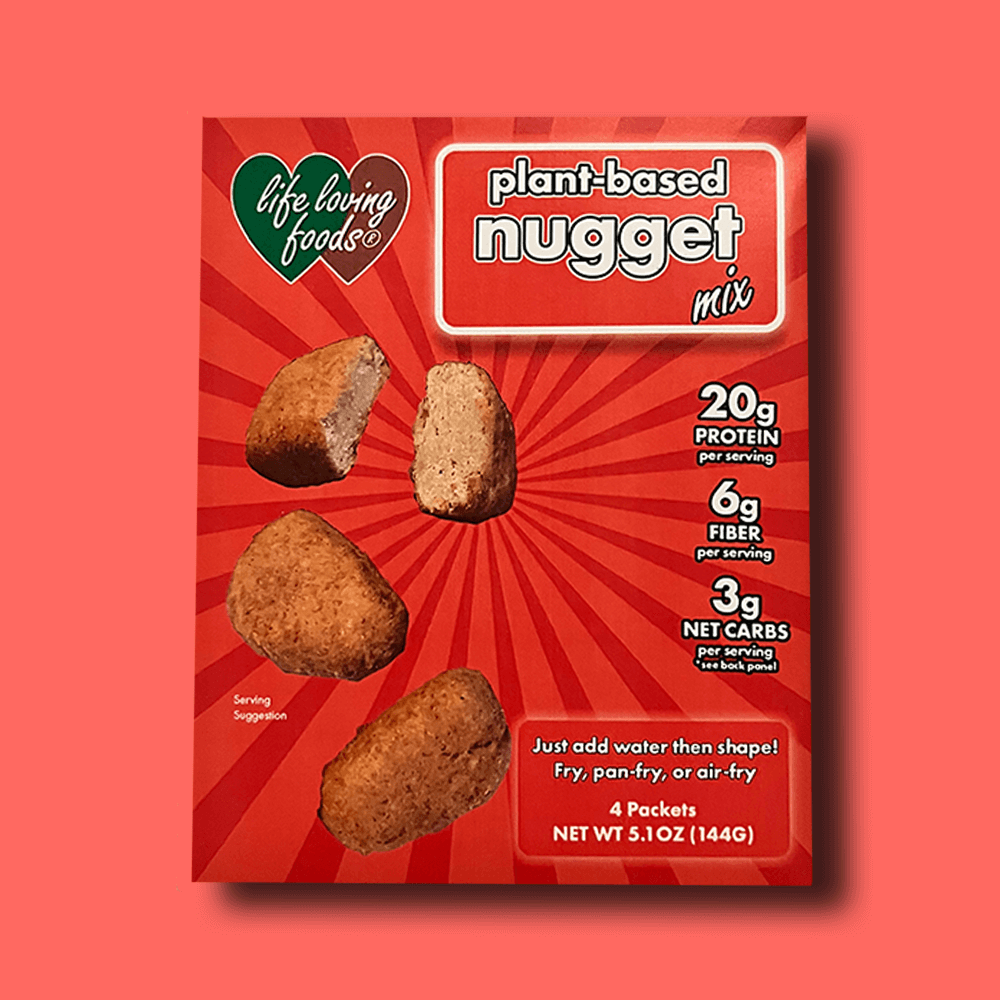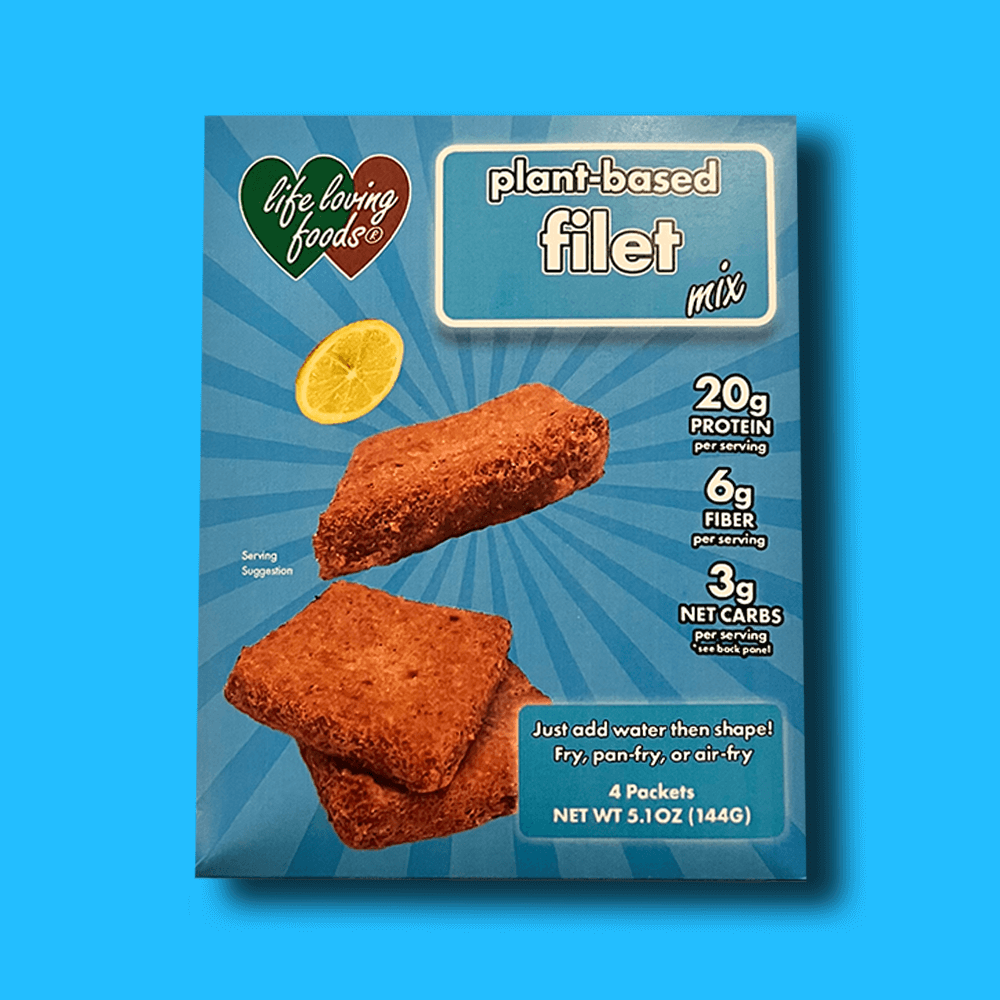Subtotal: $ 11.98
Our Inspiration
In a nutshell, we aim to make foods that manifest a love of life.
We want our products to help save lives of animals we love while also enriching the quality of the lives of those who consume them so they can find a new love of their own lives.
We do this by ensuring our meatless food is made of ingredients that avoid any harm or oppression to animals while simultaneously attempting to be as sustainable as possible. That is our mission and we try to apply it at every step of the process of our food products.
We select highly nutritious ingredients so that even nominal quantities can sustain our bodies in a balanced manner and we make them as delicious as possible while adapting them to be versions of the most loved food flavors from around the globe. We also try to make them rich enough with proteins and nutrients so that they can extend the feeling of being satiated thus reducing the need for extra food which in turn makes us healthier and more productive. It also lowers the need for food production, preserving our environment and making food more readily available for all.
Our story started in France and has now expanded to the United States to help life lovers here enjoy the benefits of our products.
Food that essentially feeds and is good for our bodies, our souls, and the rest of our world!
The future of human nutrition presents us with several challenges.
Safety, quality, availability and food distribution are key challenges.
We aim to address these four themes which concern our main ethos in the development and marketing of our products for human consumption.
Food safety
In terms of safety it is important to ensure the traceability of the grain and seeds until harvest. This is the first step and among the risk factors are direct or indirect genetic modifications as well as contamination by pesticides or pollution. In the case of vegetable proteins that are going to be the result of an extraction process and subsequently an additional process of texturization, the existing methods must be taken into account and the pollutant or contaminant effects on the material and the environment adequately evaluated.
Food quality
Consistent and constant quality must be ensured as harvests can vary and the final product will reflect these changes. As it is a dry state product that needs to be rehydrated there is in addition to the taste factor other factors such as texture, absorption and the effect of heat to be considered. This is important from a commercial point of view to be able to provide the consumer with a stable product that will encourage repeated purchase and consumption, especially when it comes to innovative products.
Food availability and distribution
Food availability meaning being able to satisfy the food supply in a consistent manner over time. This requires sufficient and optimal storage and supply management. The distribution meaning geographical logistics but also optimal distribution. It is also important to address food waste due to the influence of purely financial interests. This becomes important because climate change is negatively impacting agricultural productivity estimates and projections. Therefore the practice of destroying surplus production to maintain prices for a current year becomes irresponsible as the forecast of the next crop may be at risk.
Vegetable proteins are an effective way to address several dietary challenges at once.
The reason is the multiple added values that it presents, not only at the nutritional and food level but also at the level of the cost of production, storage and transport in resources and time.
The density of vegetable proteins
Plant based protein products provide an essential nutrient but also provide the necessary protein density.This property has traditionally been reserved for animal source foods. Being able to ingest 20 or 30 grams of protein by eating a few bites of meat or cheese has been difficult so far with plant based foods. Nuts have such a density but are too rich in fat and do not lend themselves easily to culinary transformation so they are not practical as regular food options. But vegetable proteins thanks to their diversity in forms ranging from a fine powder to various textured shapes and having in addition a neutral color and a reasonably neutral taste offer very interesting possibilities. It is possible to combine them to create a variety of finished products ranging from meat-analogue products to desserts and drinks. It is these properties that will allow plant proteins to successfully substitute animal source products.
Sufficient knowledge of the effects of the consumption of cereals and legumes.
There is also another important benefit, and this is the fact that we have many centuries of hindsight on the effect of plant products on our organisms. This is very important because if we take the example of the mad cow disease we note that it is estimated that the cause is directly related to having fed cows with products of animal origin. Even the recent COVID-19 Pandemic can be traced back to animal consumption. Wheat protein is a form of bread and pasta and is a traditional food and its effects are well known.
Vegetable proteins a real solution for the future
While there are many biological, ecological, and moral elements that ensure that vegetable proteins and foods rich in vegetable proteins offer a real solution for the future of our species and our planet, we feel the ones above are the strongest indicators of this ongoing shift in the cultural mindset around the globe.
Life Loving Foods wants to help aid in making this shift easier and tastier for all those who would like to join us!

 Plant-Based Nugget Mix
Plant-Based Nugget Mix  Plant-Based Filet Mix
Plant-Based Filet Mix